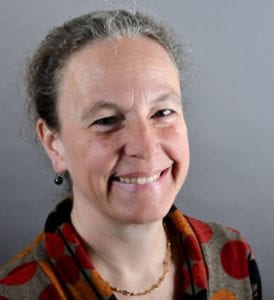 Relationships between senior children and their very old parents can be complicated enough. How does those relationships change when the parent is living with dementia?
Relationships between senior children and their very old parents can be complicated enough. How does those relationships change when the parent is living with dementia?
UMass Boston Gerontology associate professor Kathrin Boerner has spent two years studying the relationships between older adults and their parents, an increasingly common phenomena involving people in their 60’s and 70’s with parents living well into their 90’s. The ongoing project has already attracted broad interest and media coverage in The New York Times and The Boston Globe.
The study’s original design, funded by the National Institute on Aging, was based exclusively on interviews with senior children and their parents together. But researchers found they had to turn away a significant number of volunteering senior children whose parents, living with dementia, could not be interviewed. They were missing an important part of the story.
So Boerner obtained additional funding to add interviews with 100 senior children whose very old parents have dementia. About 70 of these interviews have taken place so far. Though the responses are often consistent with those from other adult children, many of those children describe the relationship with their parent differently.
“They sometimes say, ‘I don’t have a relationship anymore,’” said Boerner. “It’s more along the lines of ‘how do I have a relationship when the person isn’t really there anymore, as the person he or she was before.”
In-person interviews as a means of data collection have not been possible since the COVID-19 outbreak. But it is more important than ever to hear about how senior children with parents who have dementia are navigating the added challenges of COVID-19 and their relationships, said Boerner.
So, the study team decided to conduct remote interviews with senior children via phone of video calls
“We think this is a group that might be fine with being interviewed in that manner,” said Boerner. “Perhaps with all of us limited in our activities and socializing, people might even enjoy this kind of involvement.”
People interested in participating should call (617-901-1082) or email agingtogether@umb.edu for more information.

Leave a Reply